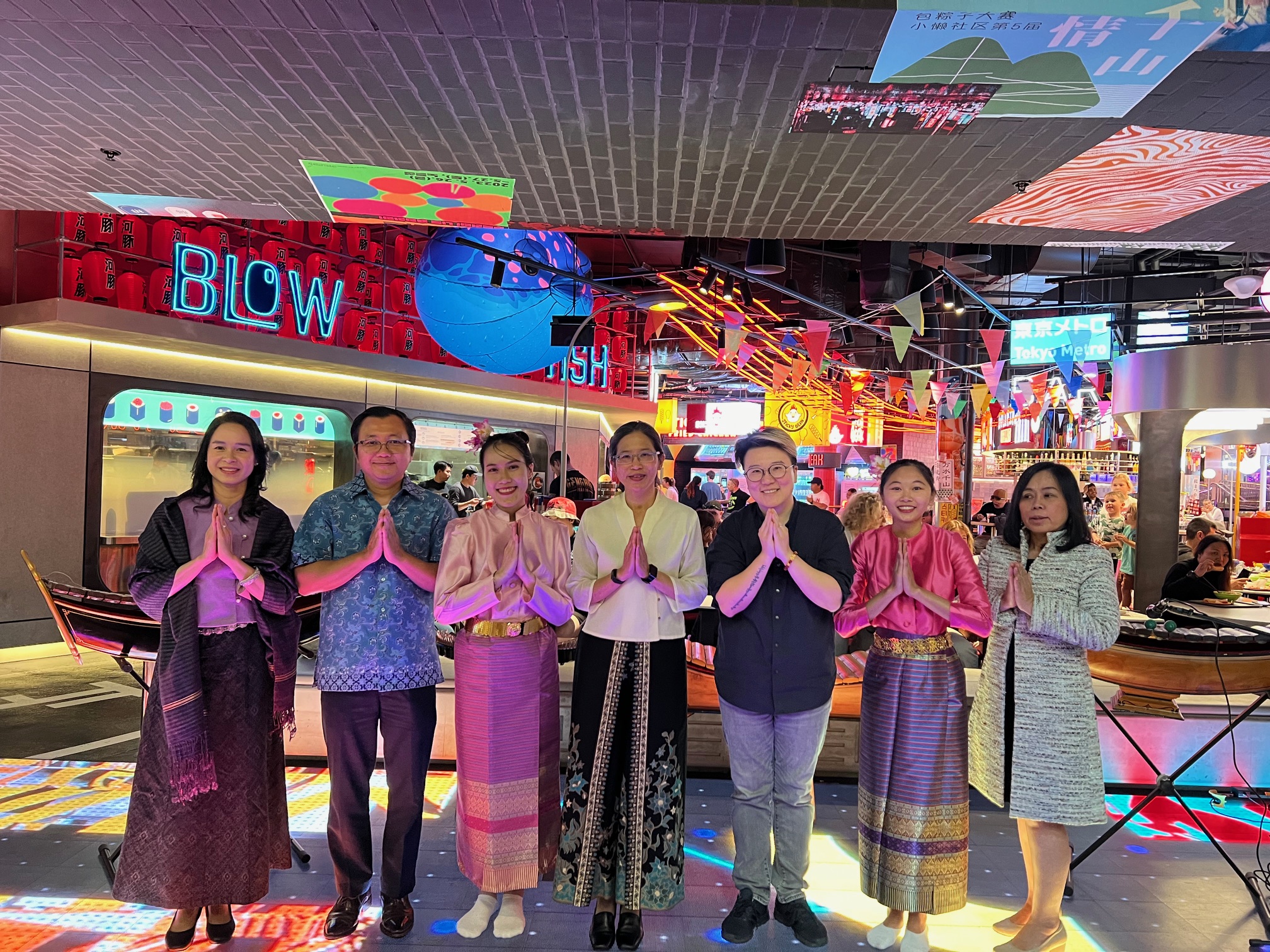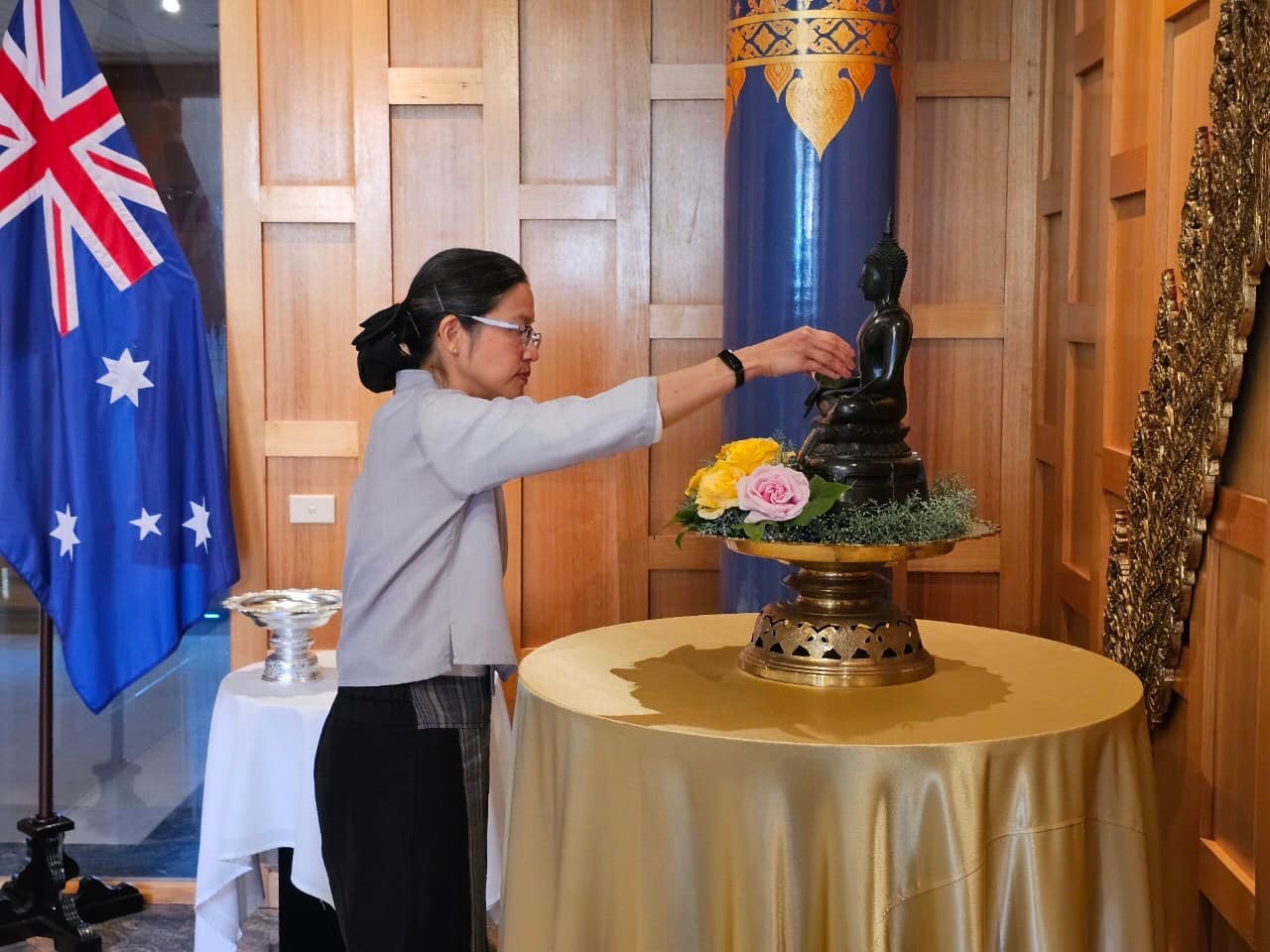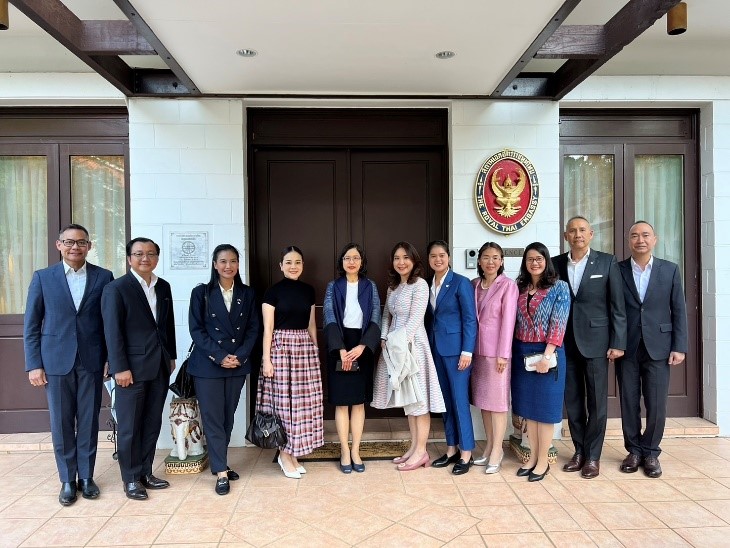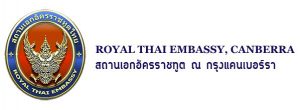F.A.Q.
Q:If I stay in Thailand’s airport exceeding 12 hours before proceeding to a third country of my destination or returning to my home country. Do I need to apply for a visa?
A:Yes, you need to apply for a Transit Visit if your stay in Thailand’s airport exceeding 12 hours even you do not plan to go outside from the airport.
Q:What is a letter of verification?
A:A letter of verification is used by the Royal Thai Embassy to determine the status of the applicant. For example, employment verification letter confirming your employment status with a company and student verification letter confirming your enrolment status at the university. If you are not employed or enrolled in a school, you may use a recommendation letter from a friend who is an Australian citizen to support your visa application.
Q: What is the different between the visa validity and the period of stay?
A:Visa validity is the period during which a visa can be used to enter Thailand. It is displayed on the visa sticker. In general, the validity of visa is 3 months, but in some cases, visas may be issued to be valid for 6 months or 1 year. The period of stay is granted by an immigrant officer upon arrival at the port of entry and in accordance with the type of visa. It is displayed on the arrival stamp. Travellers who wish to stay longer than such period may apply for extension of stay at the Immigration Offices in Thailand.
Q:I understand from what is written on the visa sticker that the visa is valid for 3 months. Does it mean that I can stay in Thailand for 3 months with my tourist visa?
A:No, that is not a correct understanding. The 3 months validity of the visa means that you must use it within 3 months from the date of issue. The period of stay will be determined by the type of your visa. Your visa sticker does not show the period of stay because it will be granted by an immigration officer upon your arrival to Thailand. In general, the period of stay for a tourist visa is not exceeding 60 days and for a non-immigrant visa is not exceeding 90 days from the arrival date. If you stay in Thailand more than the period which granted, you will be fined 500 Baht for each day of your overstay.
Q:Is it true that nationals of certain countries can apply for visa upon arrival in Thailand?
A:It is true that nationals of certain countries can apply for visa upon arrival in Thailand, but only for a Tourist Visa. Travellers with this type of visa are permitted to enter and stay in Thailand for a period of not exceeding 15 days. The list of countries entitled for visa on arrival:
Q:I came to Thailand with a tourist visa and was granted a permission to stay for 60 days; however, I wish to stay longer. What should I do?
A:You may apply for an extension of stay at any Immigration Office in Thailand where you may be permitted to stay for another 30-day period. You must do so before your pervious stay permits expires, otherwise you will be fined 500 Baht for each day you overstay in Thailand.
Q:An NGO in Thailand has invited me to go there and work for them as a volunteer for 45 days during my school break. I will not earn any money in Thailand. Do I need to apply for a specific visa?
A:Although you will work as a volunteer, you do need a Non-Immigrant visa as well as a work permit in Thailand. The NGO must be legally registered with the concerned authority of Thailand and that you need a recommendation letter from the NGO and work permit to support you visa application.
Q:I came to Thailand with a single-entry business visa. I was asked by my boss to attend an urgent meeting in Singapore for several days but I still have business to do in Thailand. Do I need to get another visa?
A:Depending on how many days you have been in Thailand since your arrival. If it is not exceeding 90 days limit for a business visa, you may apply for a re-entry permit from the Immigration Office at any International Airports in Thailand. The re-entry permit will allow you to enter the Kingdom again.
Q:I came to Thailand with a multiple-entries business visa and I lost my passport. What should I do?
A:First, you need to go to a police station for a report of the loss. Then you need to go to your Embassy in Bangkok for an issuance of new passport or temporary travel document. Finally, you need to bring the new passport or travel document to the Immigration Office for an endorsement. If your country does not have an Embassy in Bangkok, please go to the Visa and Travel Documents Division, Department of Consular Affairs, Ministry of Foreign Affairs, on Chaengwattana Road in Bangkok, to apply for the Emergency Certificate (EC). You then need to bring the EC to the Immigration Office for endorsement before leaving the Kingdom.
Q:As an Australian businessman, I have to go to Thailand very frequently on business. Is there any facility for frequent business travellers like me?
A:Yes, you can apply for a 1-year multiple-entries business visa which would allow you to travel to Thailand as frequently as you want while the visa remains valid. The period of stay is not exceeding 90 days for each visit. However, you must have a valid working permit in Thailand or a letter of approval from the Ministry of Labour of Thailand to support your visa application. Beside a 1-year multiple entries business visa, you may be eligible to apply for an APEC Business Travel Card (ABTC) which serves as a multiple-entries business visa allowing entry into 17 other APEC economies in one card, including Thailand. For more information, you may contact the Australia Border Force which is Australia’s focal authority for this scheme.
Q:I want to work in Thailand. How should I go about getting necessary visa?
A:In order to work in Thailand, there are 2 important elements: (1) Non-Immigrant “B” Visa and (2) Work Permit. First of all, you need to have a prospective employer in Thailand. Then you may apply for a Non-Immigrant Visa category “B” (business). Once you have obtained such visa, you can enter the Kingdom and therefore apply for a Work Permit from the Department of Employment, Ministry of Labour. In order to expedite visa issuance, your employer may, on your behalf, apply for the Work Permit in advance (with the form called Tor Thor 3). The Department of Employment will then issue a pre-approved certificate to be used in your visa application.
Q:Is it true that the immigration officer can still deny my entry even I have a valid visa to Thailand?
A:Yes, the immigration officer may not permit a traveler holding a valid visa entry into Thailand should he or she find reason to believe that traveler falls into the category prohibited from entering Thailand under the Immigration Act B.E. 2522 (1979)
Q:I heard that Thailand is a nice place to stay after retirement. Is there any special kind of visa for retirees?
A:Yes, there is special visa called Non-Immigrant “O-A” (Long Stay). An Australian who is 50 years of age or older who wish to stay for a long period and do not have any intention to work in Thailand may apply for such visa at the Royal Thai Embassy in Canberra or Royal Thai Consulate-General in Sydney. The “O-A” visa is allowed you to stay in Thailand for 1 year and is also able to apply for an extension with the Immigration Offices in Thailand.
Q:Is it true that I have to submit the original documents when applying for Non-Immigrant “O-A” visa?
A:Yes, you have to submit the original documents such as your bank statements and police name check certificate together with their certified copies. Please see the visa information on our website for more detail.
Q:When applying for a Non-Immigrant “O-A” visa, do I need a rubber stamp of my doctor on the medical certificate?
A:Yes, you need to have a rubber stamp of the concerned doctor or hospital on the medical certificate to confirm its authenticity.
Q:I need to bring some medication with me to Thailand. What should I do?
A: You can find guidance for carrying personal medications containing narcotic drugs/ psychotropic substances in or out of Thailand on the website of Narcotics Control Division, Food and Drug Administration of Thailand: http://narcotic.fda.moph.go.th/welcome/?p=7200







